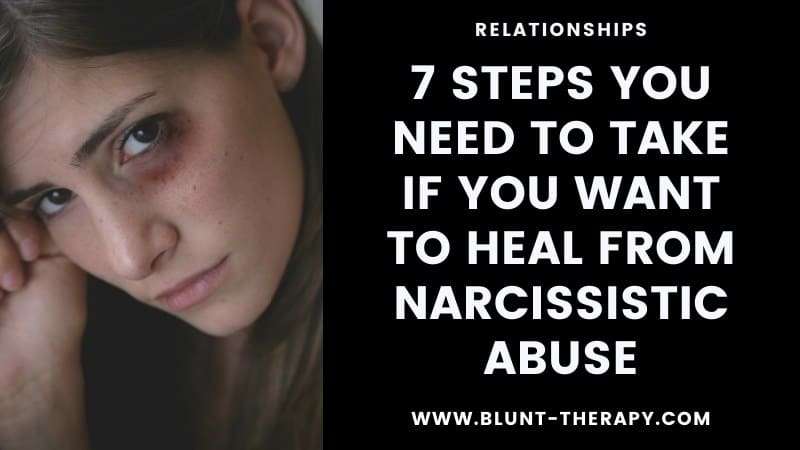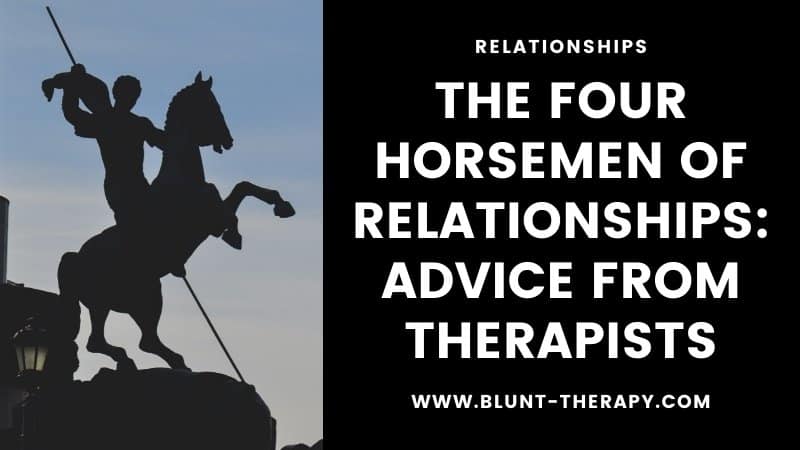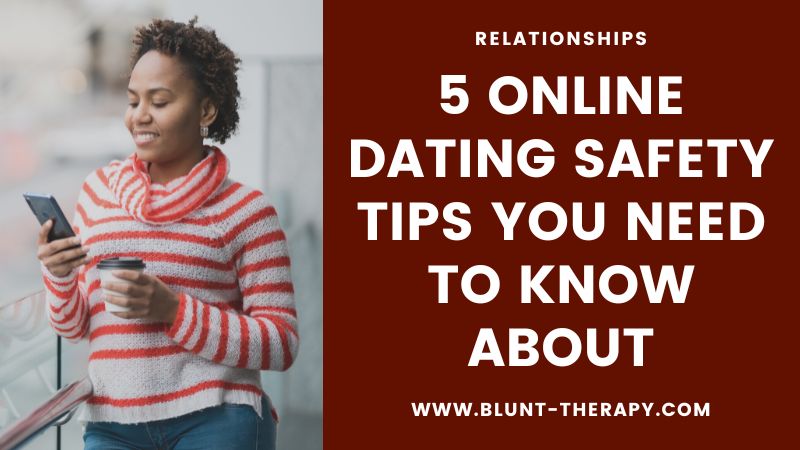Table of Contents
Affiliate link notice: As an affiliate of BetterHelp and other third-party vendors, We will receive compensation if you make a purchase using the links provided on this page. For more information, visit our disclosure page.
Last Updated on December 12, 2021 by Randy Withers, LCMHC
Domestic violence is one of the most common and least talked about crimes in the world. According to the National Coalition Against Domestic Violence (NCADV), nearly 20 people per minute are physically abused by an intimate partner in the United States.
During one year, this equates to more than 10 million women and men.
In this article, we’re going to talk about domestic violence and other forms of abusive relationships. For the purposes of this discussion, I’ll use the terms “domestic violence” and “abusive relationships” somewhat interchangeably. We tend to think of violence as physical in nature, but violence can be psychological and emotional as well.

Let’s start with a definition:
What is domestic violence?
Domestic violence is any behavior that affects a person’s physical, emotional, financial, or sexual safety in a relationship. One can be the victim of violence without being physically assaulted. If your partner tries to control you through threats or intimidation, they are guilt of committing domestic violence.
3 Types of Domestic Violence in Abusive Relationships
- Physical violence is pushing, shoving, hitting, kicking, spitting, biting, strangling, or other forms of violence intended to cause harm. In some cases, physical violence is seen as normal, and even a sign of love in your sexual relationships.
- Emotional violence is any behavior intended to harm, harass, intimidate, or humiliate.
- Sexual violence is any type of non-consensual sexual contact or activity. It includes unwanted, non-consensual sexual contact or activity – kissing, groping, fondling, intercourse without consent, or forced penetration.
Abusive relationships tend to evolve slowly, but it’s never too early to look for the signs. Abusers employ grooming techniques like controlling the victims’ behavior and reactions, monitoring them, isolating them from their support system, and manipulating them to do things against their will.
Partner violence can be difficult to recognize for many reasons.
First, because it develops gradually: from episodes of less violent behavior to regular and severe violence. You love a person, but after six months of a relationship, he gets drunk and yells at you for several hours in a row because he got jealous and thinks you are cheating on him. “It’s okay! I don’t need to pack your bags because of a single episode of abuse. It happens all the time and we can make up just as quickly.” – you say to yourself.
Then the next time your partner smashes some furniture. The damage is gets worse every time.
Sure, it would be easier to recognize abuse in your relationship if your partner began choking you only after a few months of dating. Then, it would be easier to decide and you would leave him without any hesitation.
But during the time that the violence was gaining momentum, you seemed to have prepared yourself for something harder. You have grown used to it: you have developed a tolerance for violence.
Secondly, it can be difficult to define abuse, because the abuser is doing his best to make you feel guilty or seem crazy.
These behaviors are known as victim blaming and gaslighting. When your partner gently says: “Honey, you are making everything up!” – half an hour after pounding the wall and yelling, – this is gaslighting. When he says: “Yes, I pounded the wall, but it was you who provoked me!” – that’s victim blaming.
Thirdly, violence in an abusive relationship can come in cycles. After an outburst of violence (physical or emotional), a reconciliation occurs, the so-called “honeymoon.” A partner may apologize, swear eternal love, give gifts and carry you in his arms.
Looking at such behavior, you might wonder: how can an abuser behave like that?
Key Indicators of Abusive Relationships
If you notice any of the warning signs below, you need to get help immediately. Whether you or a loved one is a victim or an abuser, domestic violence is never acceptable.
See the list of the most common signs below:
- Your partner breaks your things or threatens to break your things if you don’t follow their orders.
- Your partner yells at you constantly.
- Your partner threatens to leave you, but stops short of doing so.
- Your partner blames you for their bad moods or changes in personality.
- Your partner threatens to leave you for someone else and doesn’t follow through.
- Your partner accuses you of cheating or tells you to have an affair to show them how they feel.
Signs of physical abuse
The most obvious sign of violence in a relationship is physical abuse. This includes name-calling, threats of physical violence, or even merely doing something that can cause injury without any violence.
- Force.
An obvious sign of physical violence would be hitting, pushing, or grabbing. Your partner may apologize after an outburst of rage, but most likely this pattern of behavior will not change. The use of force is often repeated in abusive relationships.
- Changes in communication.
When you notice that your partner is suddenly not listening, you notice a change in how they approach conversations or a change in the way they talk about things, that’s a bad sign. This means there is a real danger that they are going to physically hit you, or even worse.
- Physical restraint.
When your partner is under the influence, jealous or stressed out, they may physically restrain you so that you don’t leave the house or don’t get out of bed.
Signs of psychological abuse
If you or someone you know is experiencing emotional abuse, you may want to take action. This type of abuse does not necessarily involve physical assault, but rather a continuing pattern of manipulation and controlling behavior.
Examples of emotional abuse include:
- Bullying or patronizing attitudes.
- Repeated calls, messages, emails, or visits from a controlling person.
- Demands to make changes to one’s lifestyle or appearance to fit the controlling person’s ideas of how they should look or act.
- Fear-based tactics, including threats of physical or emotional harm.
When you feel you or your loved one is experiencing emotional abuse, there are some steps you can take:
- Stop communication with the person.
- Do not allow yourself to be alone with the person.
How to protect yourself or your loved one from abusive relationships
Abuse is all around us, especially in relationships, and we can never know what is truly going on inside a relationship until we experience it firsthand. So it’s important to be able to recognize these warning signs and to know what to do if you are or your loved one are experiencing abuse.
To help prevent abuse and to protect yourself or your loved one from abusive relationships, here are some suggestions.
- Use your intuition. If something feels wrong, chances are that it is.
- Know the signs of abuse. There are many, but some of the most common signs of domestic abuse are described above.
- It’s important to have a plan before it happens. Once you have gathered up your things, talk to your friends and make an agreement with those who will support you when you decide to leave.
- Find violence relief services and crisis centers in your city so that they are close at hand. You can reach out to your local shelters and domestic violence organizations, or you can just call 911 or a hotline if you are in immediate danger.
- After getting out of an abusive relationship, you may need counseling or therapy to restore your psychological balance.
Final Thoughts
Though the effects of abuse can be painful, it’s not something that you should feel ashamed of. You are a warrior. Don’t let anyone tell you otherwise. It’s important to realize that abuse isn’t about sex, it’s about control. That said, most domestic violence victims develop a fear of intimacy.
To combat this, boost self-esteem with practices and learn to gain confidence in yourself. With the help of a licensed therapist, or through self-therapy sessions, you can discover your core strengths and affirm your own worth.
Once you discover your strengths and accept your worth, your feelings of guilt, anger and shame will begin to subside, and you’ll be much better equipped to make healthy choices.
Resources
- Lundgren E. (2004). The process of normalising violence. National Organisation of Women’s Shelters and Young Women’s Shelters in Sweden, Sweden.
- World report on violence and health: summary. Geneva, World Health Organization, 2002.
- J. McLaughlin; R.E. O’Carroll; R.C. O’Connor (2012). Intimate partner abuse and suicidality: A systematic review. , 32(8), –. doi:10.1016/j.cpr.2012.08.002
- Dutton, D. (1998). The abusive personality: Violence and control in intimate relationships. New York, NY: Guilford










